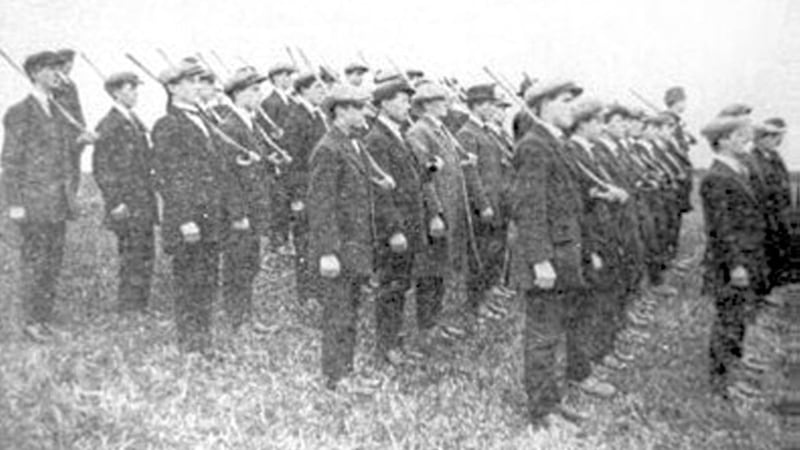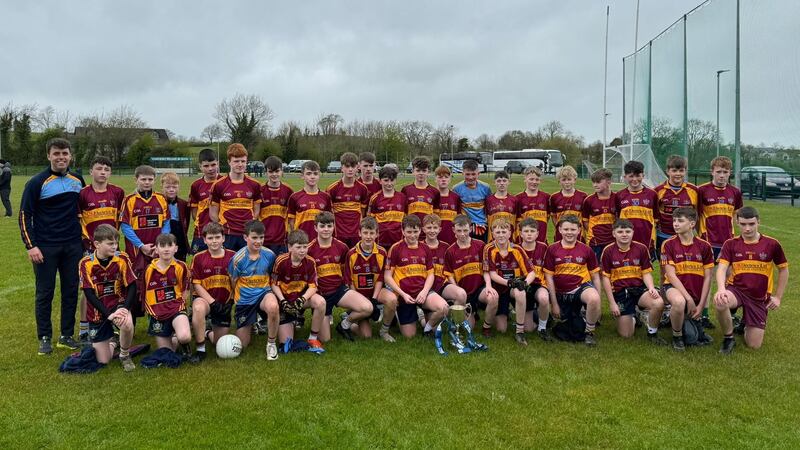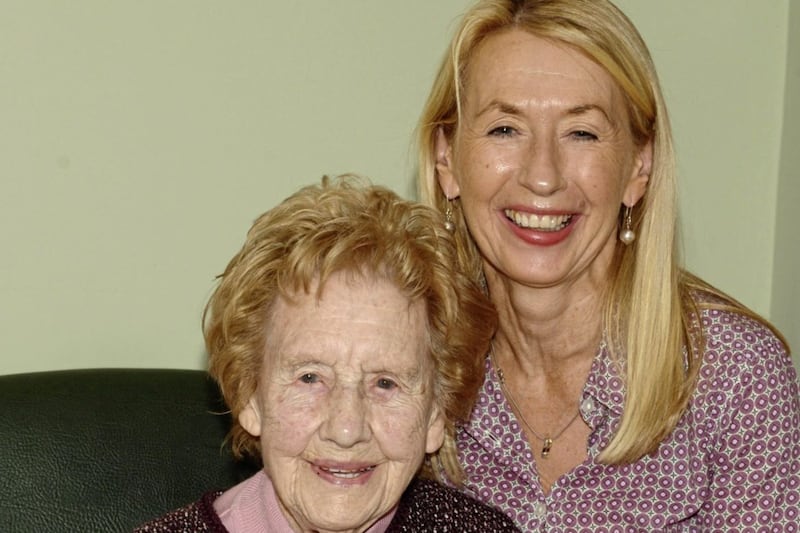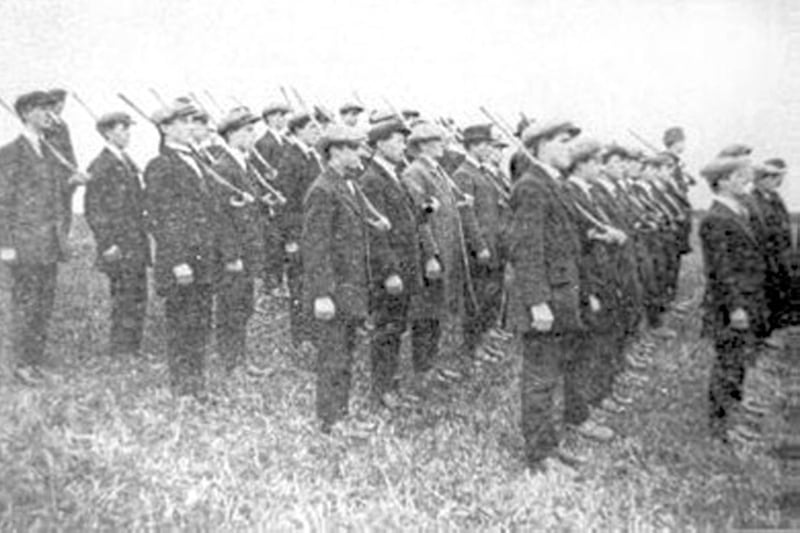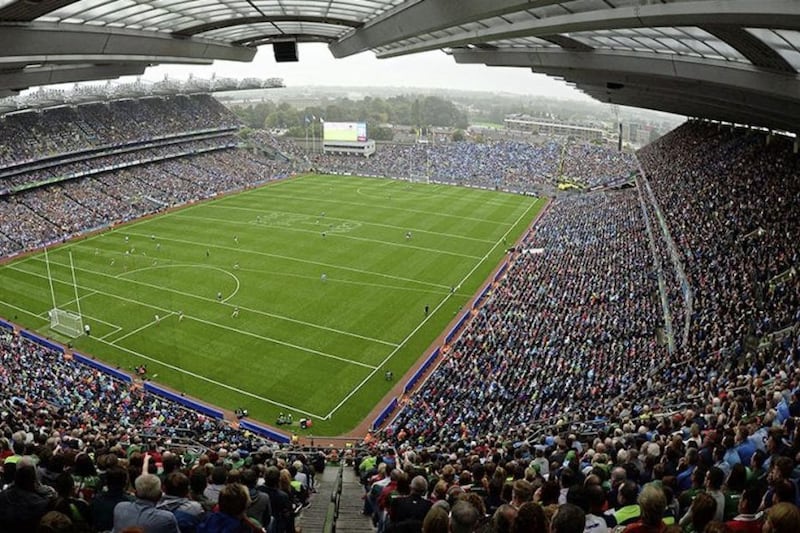IN May 1914, when a 'Day of Rest' bill was brought before the Westminster Parliament, it was made clear that sporting activities could not reasonably be prohibited on Sundays in Ireland.
One MP declared: "In regard to Ireland, it would absolutely destroy the great institution there known as the Gaelic Athletic Association, which I know does a vast amount of good and provides reasonable recreation and amusement for multitudes of people on a Sunday afternoon, with which no one knowing Ireland as I do would for a moment attempt to interfere…
"In regard to entertainments on Sunday, the position in Ireland is altogether different from the position in England. There they treat Sunday on entirely different principles from those on which we treat it here, and this Gaelic Athletic Association has been going on for years, and every one of us, whether or not we believe in the faith of the majority of the people in Ireland, are convinced that the Gaelic Athletic Association does great good in Ireland."
Those words were not spoken by a Labour politician, nor even a Liberal, but by Sir Edward Goulding, Conservative and Unionist MP for Worcester, who was backing the bill to guarantee 'one day's rest in seven' for the working classes; it didn't have to be Sunday in Ireland was his point.
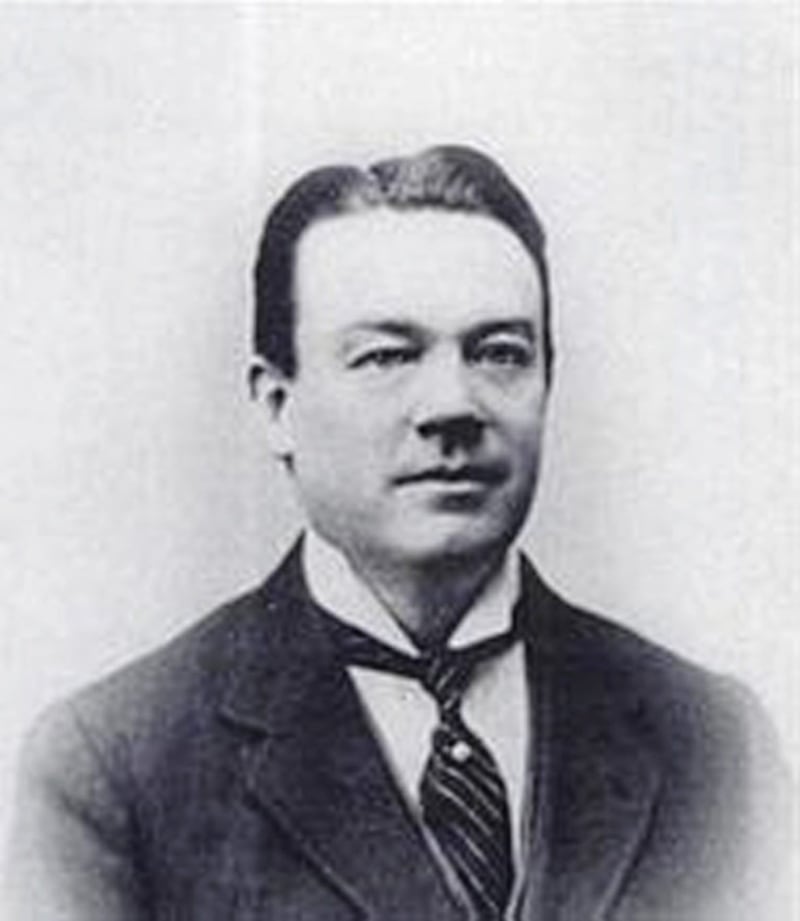
Just over four years later, in late July 1918, the Irish Parliamentary Party (IPP) MP for West Belfast, 'Wee Joe' Devlin bitterly asked this rhetorical question in the House of Commons: "Is it the law which makes it treasonable to play Gaelic games because it is said they are political? Is it the law which says it is treasonable to hold hurling matches?...
"How can you ask myself and my colleagues to assist in recruiting when, before I can come here and ask a question in the House of Commons, I have to ask you for a passport?...
"Is it the law that football matches, athletic sports, Gaelic festivals, Irish concerts are to be held only if the local police and military permit?"
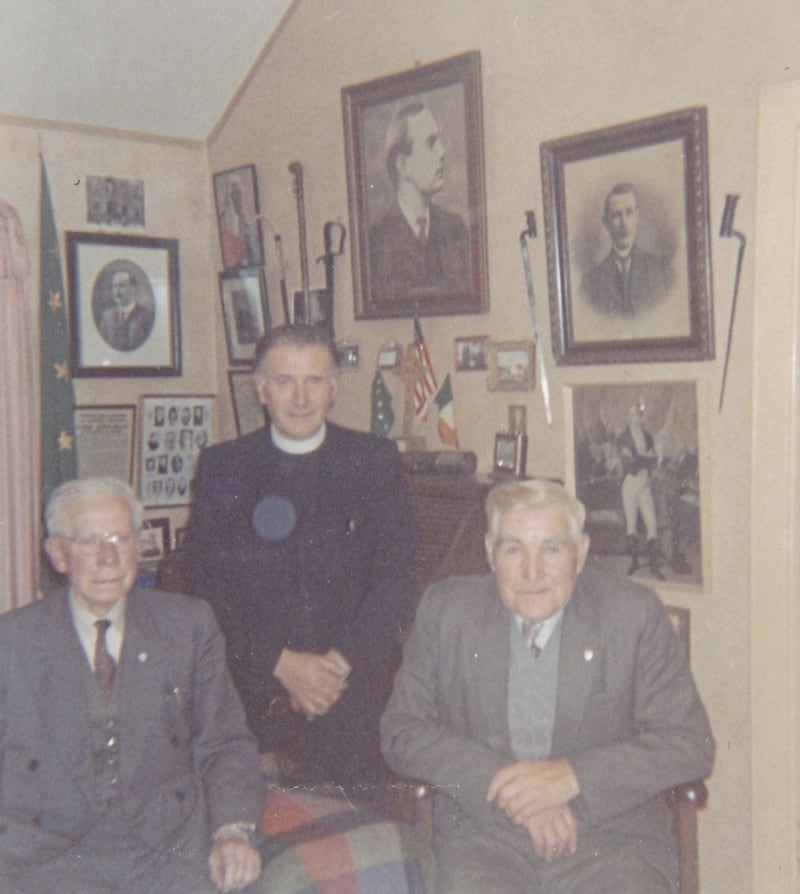
Devlin was fiercely criticising the proclamation signed on July 4 by Lieutenant-General Frederick Shaw, Commander-in-Chief of the British forces in Ireland, which prohibited 'the holding or taking part in any meetings, assemblies, or processions within the whole of Ireland'.
This was interpreted – including by the Royal Irish Constabulary [RIC] – to mean Gaelic games could not take place. The games of the same 'great institution' which a Conservative and Unionist MP had acknowledged 'does great good in Ireland.'
So what had changed?
As the great W B Yeats phrased it in his poem 'Easter, 1916':
'All changed, changed utterly:
A terrible beauty is born.'
Much had happened since May 1918 – the outbreak of `the Great War' (now more usually called the First World War) and, in Ireland, the Easter Rising of 1916. That was partly a consequence of the Home Rule bill, which would have given Ireland a large degree of self-governance, being put on the statute books – but suspended until the end of the Great War, leading to increasing Irish nationalist frustration.
While the slogan of unionist opposition was 'Home Rule is Rome Rule', the growing belief among nationalists that the British would renege on Home Rule led to more support for physical force republicanism and to seeking German help to gain Irish control over Ireland, summed up by the saying that 'England's difficulty is Ireland's opportunity'.
The Rising, obviously, worsened British attitudes towards Ireland
David Hassan, Professor of Sport Policy and Management at Ulster University, commented: "The British are engaged in a major war, with increasing numbers of young men being sent to fight, and particularly around 1916 they realised that greater numbers were required than had been anticipated, so introduced conscription.
"While that was welcomed in Britain, to some extent, conscription was strongly resisted in Ireland, right across the piece.
"The British, to some extent, never forgave the Irish for resisting conscription. Fast forward to the Germans' 'Spring Offensive' of 1918, one last effort to swing affairs their way, and real pressure starts to come on Ireland over conscription - and the British were no longer prepared to take any 'excuses'.
"You start to see things like the ramping up of objections about special trains running to GAA matches and then the decree in July 1918 that there would be no mass gatherings permitted, and what follows from there.
"Any study of Gaelic Sunday needs to understand that the British, very occupied elsewhere, were becoming increasingly agitated with the Irish, all shades of political opinion in Ireland, about how they weren't really 'co-operating'.
There were also deepening divisions within Irish nationalism, with the more radical Sinn Fein challenging the traditional Irish (Parliamentary) Party (IPP) for hearts and minds – and votes.
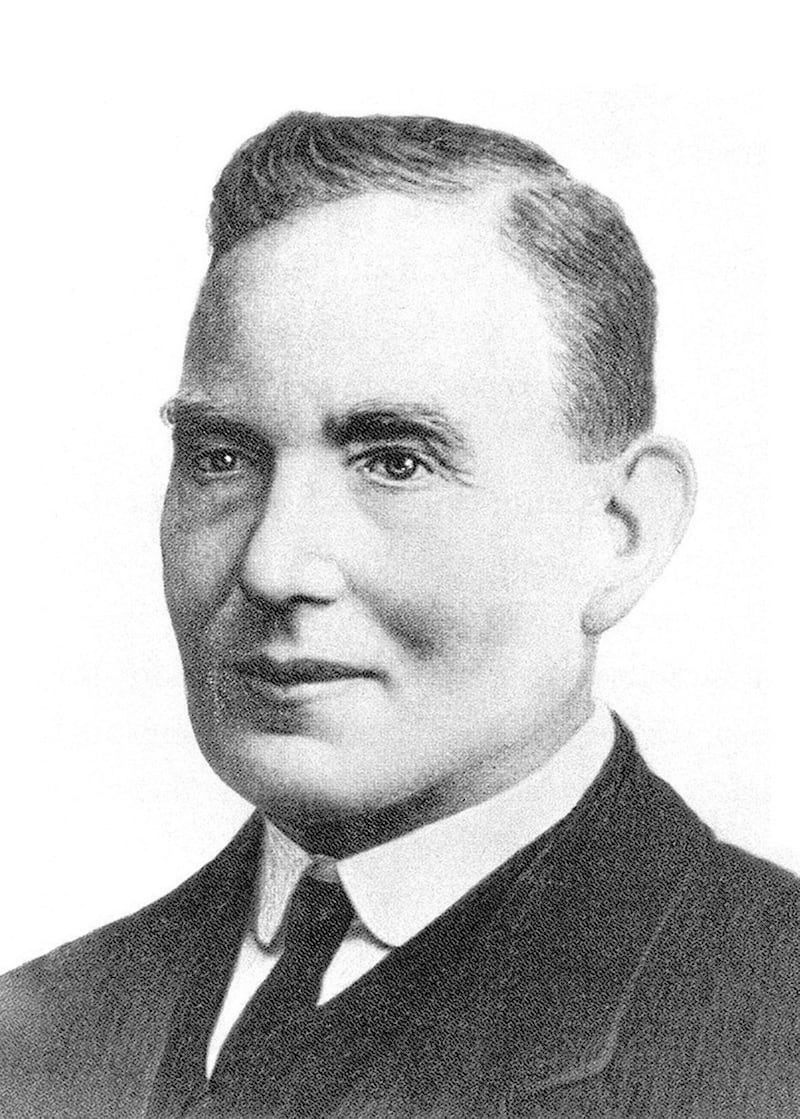
'The Irish News' GAA correspondent sacked
Indeed 'The Irish News' GAA correspondent lost his job in 1915 because of his support for physical force republicanism, as he recalled more than 30 years later:
"Coming towards Rossa's funeral I wrote on Rossa and the desirability of all GAA men doing their part and attending the funeral.
"The editor of the paper sent for me when my article went in and pointed out that this was against the policy of the 'Belfast Irish News'. He dismissed me from my post as writer of GAA notes for mentioning Rossa's funeral.
"He cut out Gaelic notes for about a month until the GAA met and as an organisation demanded that the paper be re-opened to GAA notes. The editor agreed on condition that someone other than I would be the writer.
"This is only to show that their policy then was so much against things Irish that even the mention of O'Donovan Rossa's funeral was too much for them." The writer is being rather harsh on this paper, which was moderately nationalist, certainly not 'against things Irish'.
He himself was rather more radical – Seamus Dobbyn, who was involved in the Irish Republican Brotherhood, the Dungannon Clubs, and the Irish Volunteers.
He was also prominent in the GAA, becoming Ulster Council President from 1919 to 1923, and later stated: "The men who ran the Dungannon Clubs and later Sinn Fein were also the driving forces behind the Gaelic League and the GAA organisation.
"A number of other men were prominent in both GAA and Gaelic League, such as Dan Dempsey, Art McGahan, Tom Clear, Paddy Cleary, and Pat McFadden."
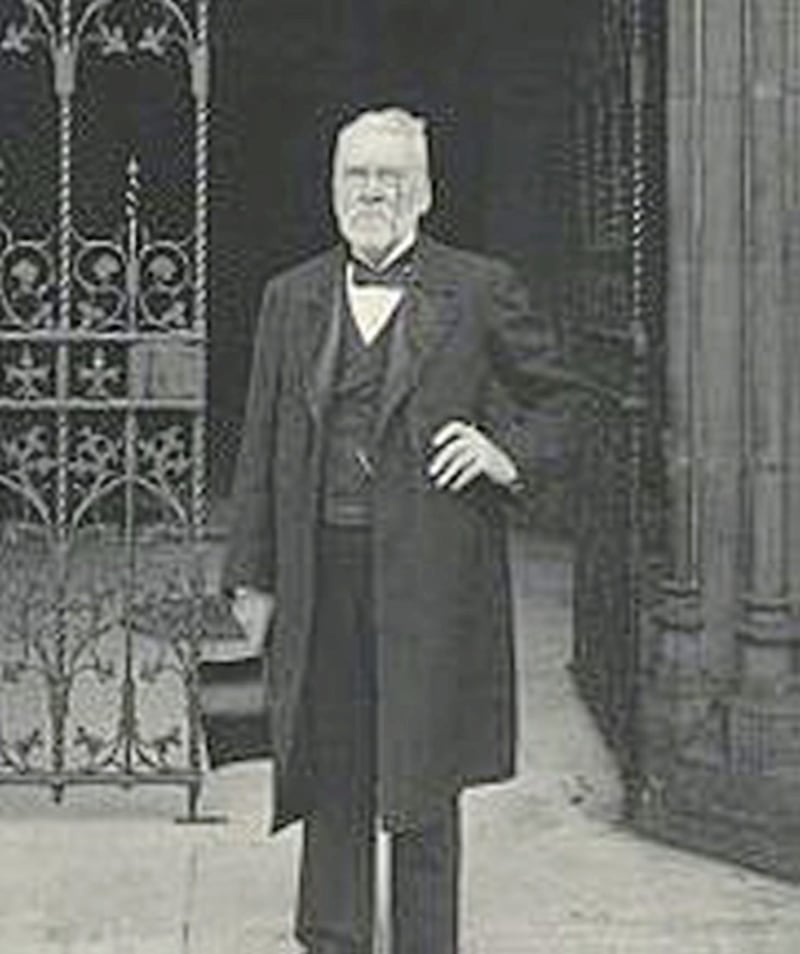
How revolutionary was the GAA?
Yet Hassan contends that the GAA's role in the revolutionary years has been over-stated: "There's a perception, which maybe at times the GAA themselves have been overly acquiescent to, the notion that they as an organisation were heavily involved in that decade of revolution.
"A Dublin GAA history chronicled all its [GAA] members involved in the Rising – around a quarter of clubs had no members involved.
"Of about 1500 people who, to some extent, were involved in the Rising, it's reckoned that about a maximum of 20 per cent were GAA members. The notion that the GAA was at the vanguard of political revolutionary activity is something of a myth."
Indeed when the Irish Volunteers split in September 1914 over whether or not to assist the British war effort, it's estimated that more than 90 per cent of its members initially went with the new 'National Volunteers' advocated by IPP leader John Redmond.
"There was a degree of willingness from the Association to be part of a 'pan-nationalist front' – but while the GAA was certainly not political, they were almost bystanders," states Hassan. "'Gaelic Sunday' is the first time for the Association actively getting engaged in the affairs of the time.
"It's only when the organisation's ability to play games is challenged, it's only then that they take a much stronger line."
There are photographs of Irish Volunteers drilling with hurleys – largely because they did not possess enough rifles – both before and after the split and Hassan says "such imagery played both ways for the Association – it further embellished its place in the psyche of the Irish at that time, but it also became problematic due to bans on mass organisations. The RIC did little to dissuade the British from the notion that the GAA was just a seditious organisation."
The GAA's own factsheet about 'Gaelic Sunday' says that "After the 1916 Rising the GAA began to witness a fall-off in games, when a series of unforeseen circumstances combined to halt the steady progress the Association had made over the preceding years. Many members turned their energies towards more political ends and preferred to join the Irish Volunteers. The Rising itself had caused major disruption to native games.
"During the latter part of 1916 there was intermittent harassment by the British military and police forces. Perhaps of greatest impact was the withdrawal of special trains. This ban on excursion trains for Gaelic games continued into 1917. During 1917 the Sinn Féin party grew in popularity. In September 1917 Thomas Ashe, who had fought in the 1916 Rising, died from forced feeding while in custody. A large number of GAA men all carrying hurleys played a prominent part in his funeral procession."
The conscription crisis
Yet there was still significant support from Ireland for the British war effort. John Redmond's successor as the leader of the IPP was his son, William Archer Redmond. He was MP for East Tyrone when his uncle and fellow politician Willie co-sponsored that 'Day of Rest' Bill in 1914, but joined the National Volunteers in the New British Army and served on the Western Front for the duration of the war, first in the Royal Dublin Fusiliers and then in the Irish Guards, rising to the rank of captain.
When his father died in March 1918, William resigned the East Tyrone seat to contest and retain the Waterford constituency, campaigning in his army uniform and wearing a black armband. His victory ended a run of by-election victories by Sinn Fein, and was followed by more IPP by-election successes in South Armagh and East Tyrone, beating Sinn Fein into second place in both.
There have been suggestions that Sinn Fein's popularity may have peaked, but, as they had done in their reaction to the Easter Rising, the British then shot themselves in the foot by trying to introduce conscription to Ireland.
As had been feared, they also shifted the goalposts, and linked the introduction of Home Rule, repeatedly called for by the IPP, with the acceptance of conscription.
Enter – or rather, exit, one of those complicated characters which Ireland has specialised in producing.
Samuel Young was born in Dunevelly, near Portaferry in 1822, was brought up in a Church of Ireland family but attended the Old Presbyterian School in Belfast before becoming a draper and opening his own store. At the age of 50, he opened a brewery in Limavady as an extension of the Belfast-based Young, King & Co distillery. One of his employees was a certain Joseph Devlin, who ran a Belfast pub for him until 1902 – when he was elected, unopposed, as IPP MP in the Kilkenny North By-election.
Young's connection with Devlin (who later went on to become MP for Belfast West, leader of the minority IPP, and then Stormont MP for Fermanagh and Tyrone until his death in 1934) led to the rather remarkable last quarter of Young's long life.
With the support of 'Wee Joe', he was elected for the anti-Parnellite Irish National Federation at the East Cavan by-election, at the age of 70, handsomely defeating a unionist opponent. He held his seat unopposed until his death on April 18th, 1918, at the age of 96, by which time he had become the oldest Westminster MP since at least the 16th century.
The 1918 East Cavan by-election provided an opportunity for Irish nationalism to come together in opposition to the recent British clampdown – but it only did that in part.
On the same day as Young's death, an Anti-Conscription Committee was formed in Dublin, including Sinn Fein founder Arthur Griffith and John Dillon, new leader of the IPP.
The next day Sinn Fein took Tullamore in an uncontested by-election, the IPP having withdrawn in the interests of 'national unity'.
On April 23rd – perhaps a significantly chosen date as it is St George's Day – Ireland was brought to a standstill by a one-day general strike.
The 'German plot'
"There's something of an irony that the British actions stoked up greater nationalist fervour," says Hassan. "The GAA was going along, minding its own business to some extent, then along with other organisations it becomes embroiled to a much greater extent in this broader resurgence of Irish nationalism - and that played right into the hands of Sinn Fein."
Indeed Redmondite papers like the 'Dundalk Democrat' were heavily critical of the role GAA began to play, accusing it of almost being a 'colour party' for Sinn Fein.
Sinn Fein and GAA leaders were arrested after the publicising of the so-called 'German Plot' in May 1918, suggesting collusion between elements in Ireland the British Empire's war foe. GAA President James Nowlan – after whom the county ground in his native Kilkenny is named – was one of those interned in Frongoch, Wales.
Still, although "there was a degree of willingness from the Association to be part of a 'pan-nationalist front'", Hassan insists that "the GAA was certainly not political, they were almost bystanders. 'Gaelic Sunday' is the first time for the Association actively getting engaged in the affairs of the time.
"It's only when the organisation's ability to play games is challenged, it's only then that they take a much stronger line."
In June, the (British) government had proclaimed [i.e. declared illegal] the GAA in 13 counties, mostly in the south and south-west of Ireland.
Then on July 4, 1918 a proclamation was signed into effect by Lt-Gen. Frederick Shaw, Commander-in-Chief of the British forces in Ireland, which prohibited 'the holding or taking part in any meetings, assemblies, or processions within the whole of Ireland.'
The GAA records that "the holding of any public meeting, except with an official permit, was announced. The police were ordered to prevent the public playing of games and other sports such as athletics. Acting immediately, the RIC began breaking up games and sports meetings. Reports from the period tell of the RIC uprooting and confiscating goal-posts, while in Cork camogie matches were prevented."
How would the GAA react?
* This article and those to follow tomorrow and on Saturday owe huge debts to the lengthy piece co-written by Andrew McGuire & David Hassan and published in The International Journal of the History of Sport in 2012, entitled 'Cultural nationalism, Gaelic Sunday and the GAA in early 20th century Ireland'. Prof. Hassan's insightful interview was also of great assistance.
